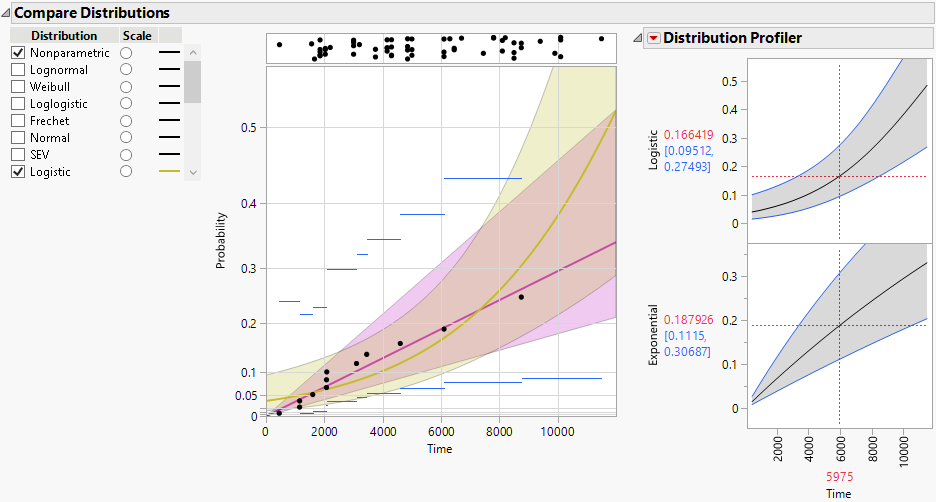Publication date: 06/27/2024
Life Distribution
Fit Distributions to Lifetime Data
The Life Distribution platform models time-to-event data. The platform accommodates both right-censored and interval-censored data.
Use the Life Distribution platform to do the following:
• Compare multiple distributional fits to determine which distribution best fits your data.
• Construct Bayesian fits.
• Model zero-failure data.
• Compare groups to analyze group differences.
• Analyze multiple causes of failure.
• Estimate the components of a mixture and estimate the probability that an observation comes from a given component.
• Estimate the components of a competing risk mixture and estimate the impact of a component on an observation.
Figure 3.1 Distributional Fits and Comparisons
Contents
Overview of the Life Distribution Platform
Example of the Life Distribution Platform
Launch the Life Distribution Platform
Life Distribution Report
Event Plot
Compare Distributions in Life Distribution
Statistics for Life Distribution
Life Distribution Report Options
Fit Mixture
Fit Competing Risk Mixture
Weibayes Report
Competing Cause Report
Competing Cause Workflow
Competing Cause Model
Cause Combination
Statistics for Competing Cause
Individual Causes
Competing Cause Report Options
Life Distribution - Compare Groups Report
Statistics for Compare Groups
Individual Group
Life Distribution - Compare Groups Report Options
Additional Examples of the Life Distribution Platform
Example of Omitting Competing Causes
Example of Axis Scale Changes in the Compare Distributions Plot
Example of Comparing the Same Distribution across Groups
Example of Weibayes Analysis
Example of Fitting Mixture Distributions
Example of Fitting a Competing Risk Mixture
Example of Fitting a Fixed Parameter Competing Cause Model
Statistical Details for the Life Distribution Platform
Statistical Details for Distributions
Statistical Details for Competing Causes
Statistical Details for Median Rank Regression
Want more information? Have questions? Get answers in the JMP User Community (community.jmp.com).
